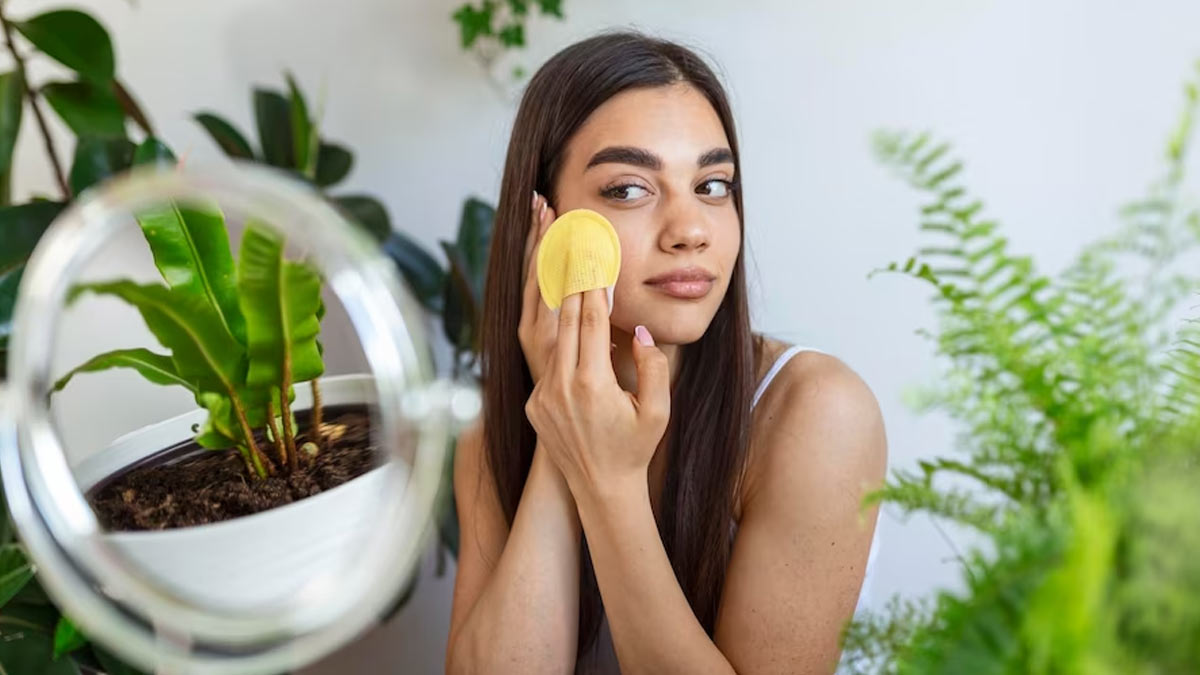
If you've ever wondered whether your skincare routine should adapt to the changing seasons, you're not alone. Television commercials featuring skincare products seem to shift with every season, leaving us wondering if these changes are necessary. Our skin faces distinct challenges as it transitions from the scorching heat of summer to the chilly winter months. To shed light on the same, we spoke to our experts who explained the impact of seasonal changes on skin and the changes to follow.
Impact of Seasonal Changes On Skin

Dr Ruby Sachdev, Consultant - Aesthetic Physician and Founder, Skinnfit Medspa, Gleneagles Global Hospital, Bengaluru, said, “Each season brings its own set of environmental factors that affect our skin. During summer, increased sun exposure can lead to Ultraviolet (UV) damage and increased oil production. Fall and winter, on the other hand, introduce cold and dry air that can lead to dehydration and flakiness. Adapting your skincare routine to accommodate these changes can help address these specific concerns.”
Summer Skincare Adjustments

During the summer months, our primary focus should revolve around shielding our skin from the harmful effects of the sun's rays and managing the increased oil production. According to the Journal of the European Academy of Dermatology and Venereology, sweating more as a result of hot conditions raises moisture levels, sebum secretion, and greasiness while lowering skin pH. Dr Sachdev highlighted, “Lightweight, oil-free moisturisers and broad-spectrum sunscreens become essential to shield the skin from UV damage. Also, incorporating antioxidants can help combat free radicals caused by sun exposure.”
Autumn Fall
As autumn approaches and temperatures begin to cool, our skin's moisture barrier may start to weaken. Dr Sachdev said, “To counteract this, opt for richer moisturisers that provide hydration and help maintain the skin's protective barrier. Exfoliation becomes crucial to remove dead skin cells that accumulate during the summer, revealing a fresh complexion underneath.”
Also Read: Period Skincare: Expert Lists Dos and Don’ts During Menstrual Cycle
Winter Winds

Cold winter air can lead to dryness, sensitivity, and even eczema flare-ups. According to the Journal of the Mechanical Behaviour of Biomedical Materials, skin firmness and elasticity were lower in the winter. Dr Sachdev added, “A skincare routine during this season should prioritise deep hydration through the use of heavier moisturisers and hydrating serums. Consider incorporating products with ingredients like hyaluronic acid and ceramides to lock in moisture.”
How to Adapt Your Skincare Routine?

Dr Deepa Krishnamurthy, Consultant – Dermatologist, Manipal Hospital, Sarjapur Road said, “Cleansing, moisturising, and sunscreen application should be the three essential steps of your skincare routine.”
- Cleansing: Use a gentle, hydrating cleanser in colder months and consider switching to a foaming cleanser in the summer to remove excess oil.
- Moisturising: Choose thicker, more emollient moisturisers for winter and lighter, oil-free options for summer. Water-based gels and lotions are the best options for summer, whereas switching from lotions to creams may be required during the winter. Creams are thicker and they help keep your skin moisturised for longer.
- Sunscreen: Always apply broad-spectrum sunscreen with at least SPF 30, irrespective of season. Dr Krishnamurthy added, “Sunscreens help combat sun-damage-related skin problems such as premature ageing and reduce the risk of skin cancer. During peak summers, you may consider switching to higher SPF and also consider reapplying every two hours, especially if you are outdoors for a long duration and subjected to prolonged sun exposure and excessive sweating.”
- Allergen Management: Be mindful of allergens in the spring and take appropriate measures, such as using hypoallergenic products.
Tailoring Your Routine
Rather than completely overhauling your skincare routine, Dr Sachdev suggests a gradual transition based on your skin's needs. She added, “Pay attention to your skin's needs and make adjustments accordingly. For instance, if you notice increased dryness or sensitivity, introduce more hydrating products. On the other hand, if you experience excess oiliness, opt for lightweight formulations.”
Consulting a Professional
While adapting your skincare routine seasonally is beneficial, seeking advice from a dermatologist is valuable, especially if you have specific skin concerns. A skincare professional can provide personalised recommendations based on your skin type, concerns, and the climate you live in.
[Disclaimer: This article contains information provided by a medical professional and is for informational purposes only. Hence, we advise you to consult your dermatologist before making any changes to your skincare routine, especially if you are dealing with any skin condition.]







